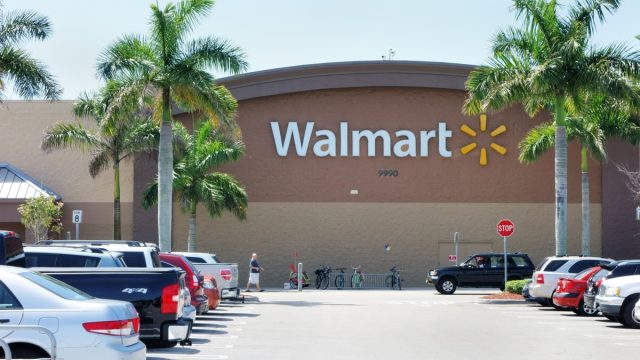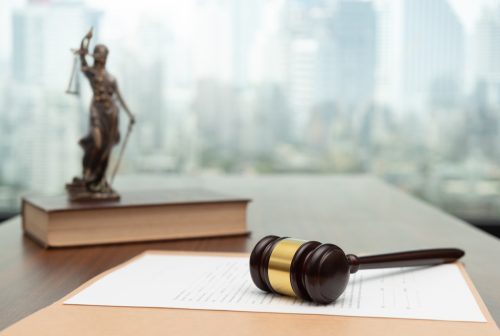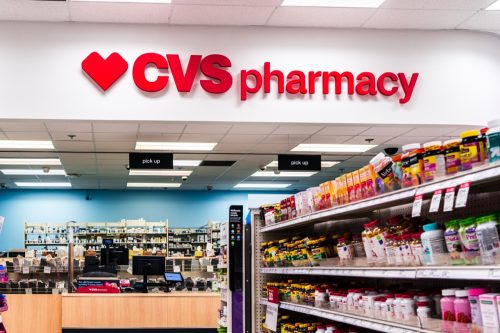Walmart and CVS Will No Longer Let You Do This, Effective Immediately

Many of us rely on stores like Walmart and CVS for daily necessities, whether we’re heading out to shop for groceries or to pick up a prescription. So, when these retailers announce restrictions, it can be frustrating and inconvenient. And now, both Walmart and CVS have said that they will no longer allow customers to do something they used to be able to do in stores, effective immediately. Read on to find out what these retailers are putting limits on, and how it might affect you.
READ THIS NEXT: Walmart Is Making This Unprecedented Change for All Shoppers.
The U.S. Supreme Court recently overturned Roe v. Wade.

On June 24, a decision was made by the Supreme Court to overturn Roe v. Wade, effectively eliminating the constitutional right to have an abortion. In light of the ruling, it is now up to individual U.S. states to determine the legality of abortion, as reported by The Wall Street Journal, and over 20 states are anticipated to ban the procedure.
The Roe v. Wade ruling was made nearly 50 years ago, in 1973, but with the decision in states’ hands now, women may have limited access to legal abortions, depending on where they live. While anti-abortion groups celebrated, the ruling sparked outrage and protests across the country, with many concerned about how this will impact women’s safety, particularly women of color, according to The Washington Post.
And U.S. retailers are also facing consequences associated with the decision, as women are seeking different options.
One product is in higher demand.

Over-the-counter emergency contraceptives have seen a spike in demand as a result of the Supreme Court decision, forcing retailers to take action. Commonly marketed under the brand names Plan B and Aftera, “morning-after pills” are taken between one and three days after unprotected sex. They are used as a backup method, according to Mayo Clinic, and work to prevent pregnancy by delaying or preventing ovulation. They do not require a prescription or identification to purchase.
RELATED: For more up-to-date information, sign up for our daily newsletter.
Retailers are rationing purchases to help offset demand.

Now, in light of limited supplies, CVS has limited purchases of emergency contraceptives to three per customer, as per its website. Walmart, on the other hand, doesn’t have limits on some pills, but these would not ship out until July, The Wall Street Journal reported. For pills available this week, Walmart customers can only purchase four or six. And Rite Aid has also enacted a purchase limit of three packs per customer.
CVS told the outlet that the purchase limit has been put in place “to ensure equitable access,” while also keeping an “ample supply” of emergency contraceptives in stores and online. Increased demand was cited as the reason behind Rite Aid’s limit, a spokesperson told The Wall Street Journal.
Charles Crowson, a spokesperson for Walmart, confirmed in an email to Best Life that several of the retailer’s products have online purchase limits.
“During times of fluctuating demand, these limits may change,” he said.
Walgreens is currently taking a different approach.

As reported by The Washington Post, Walgreens isn’t currently limiting the purchase of two contraceptives that it sells, Plan B and Take Action. The pills are out of stock for shipping purchases, but are still available for pickup and same-day delivery for specific stores, per the pharmacy’s website.
The company is still able to meet demand in-store, a spokeswoman told The Washington Post, eliminating the need for a ban at the present moment.
“We are working to restock online inventory from ship-to-home,” the spokeswoman said.
Experts advise against stocking up on pills.

While access to contraceptives is not affected by the Roe v. Wade ruling, many women fear that restrictions could be put in place in the near future. Justice Clarence Thomas insinuated this might be coming down the pike in his concurring opinion, noting that the court “should reconsider” three additional decisions that provide rights to contraception, same-sex relationships, and same-sex marriage, according to The New York Times.
And while women are currently fearing the worst, Planned Parenthood has advised against purchasing an abundance of emergency contraceptives.
“Keep in mind that stockpiling or hoarding emergency contraception can limit the ability of people in your community” to obtain Plan B pills, Megan N. Freeland, PharmD, director of health communications for Planned Parenthood Federation of America, told The New York Times.
These pills also have a limited shelf life, meaning they could expire before you have the need to use them.